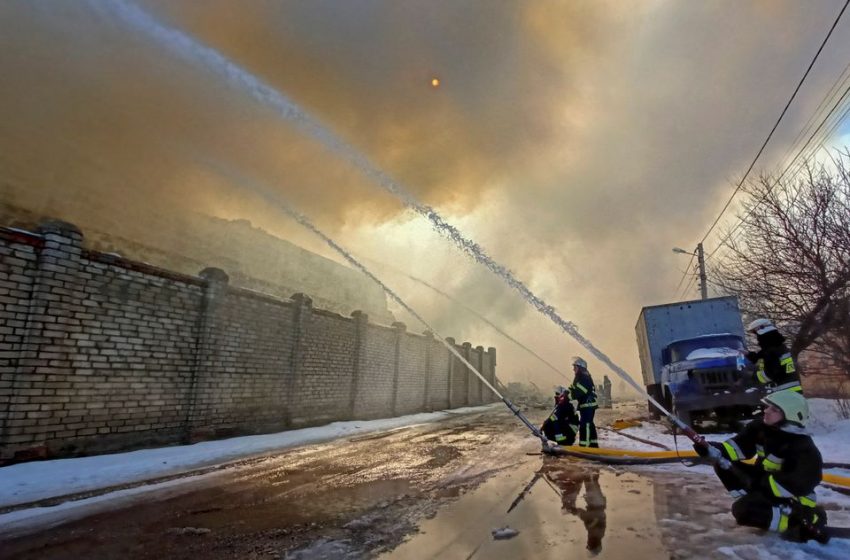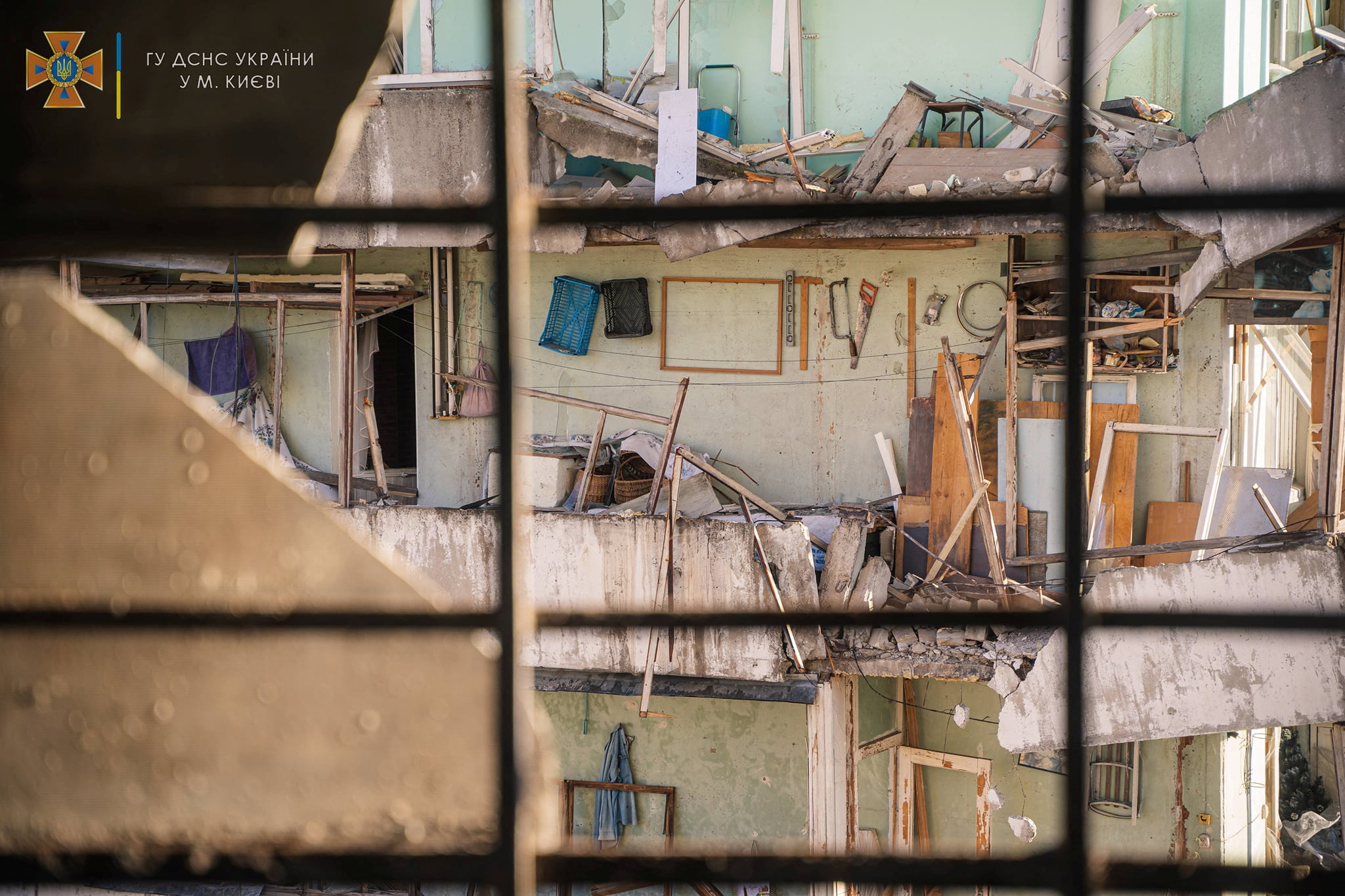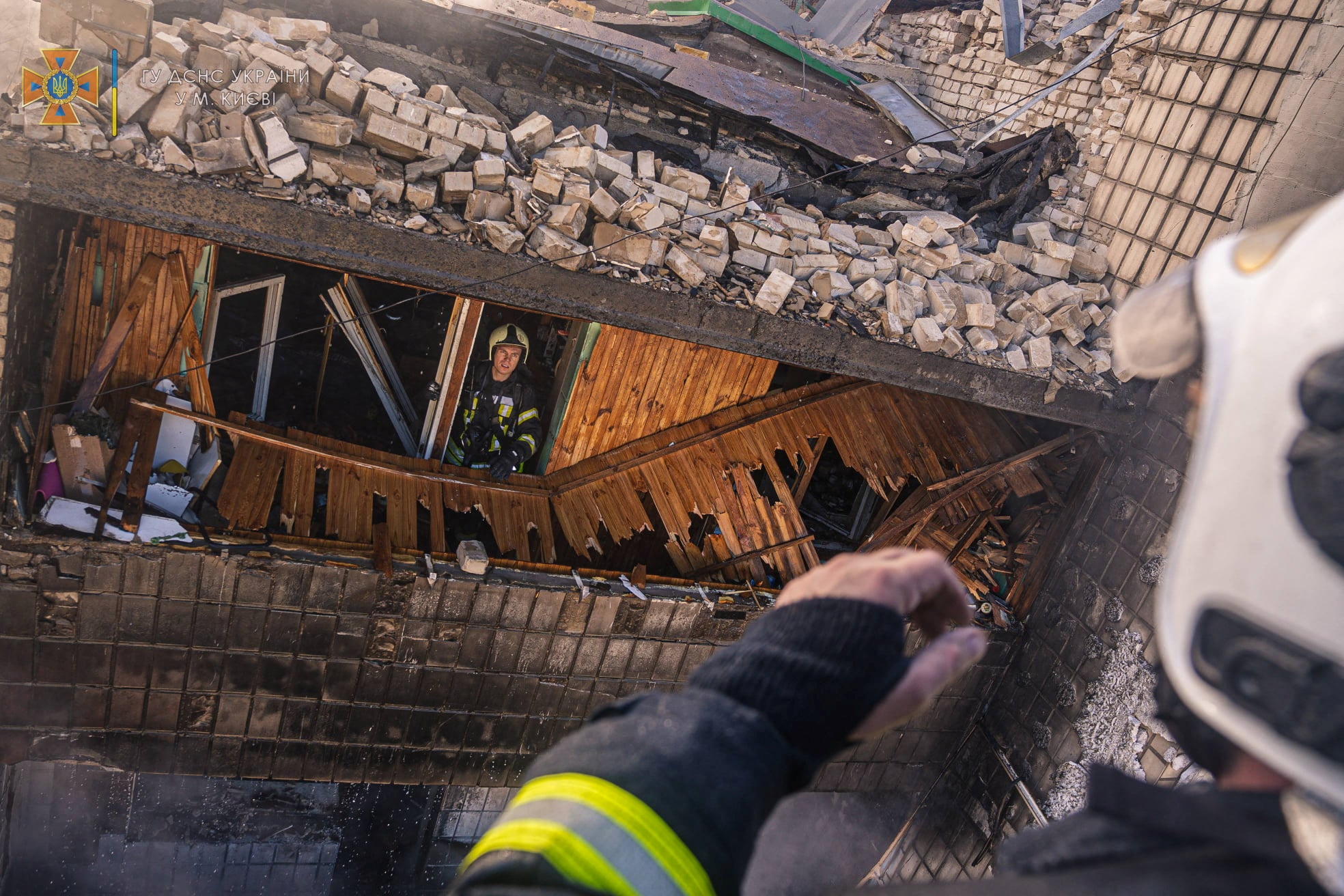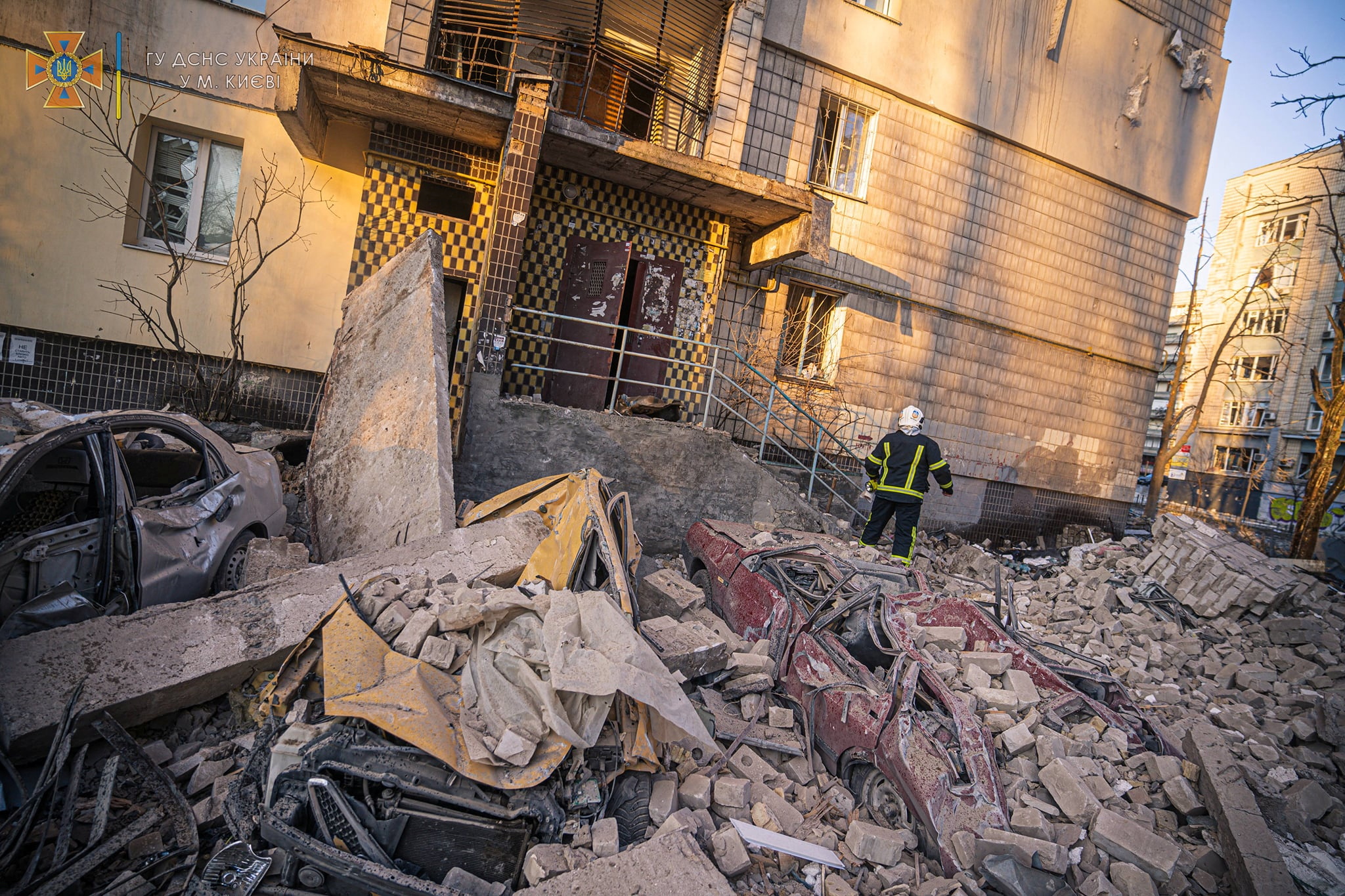
Rescuers work at a site of a warehouse storing products burned after shelling, as Russia’s attack on Ukraine continues, in Kharkiv, Ukraine March 16, 2022. REUTERS/Vitalii Hnidyi
Russia and Ukraine looking for compromise in peace talks
Russia and Ukraine both emphasised new-found scope for compromise on Wednesday as peace talks were set to resume three weeks into a Russian assault that has so far failed to topple the Ukrainian government.
Ukraine’s President Volodymyr Zelenskiy said the talks were becoming “more realistic”, while Russian Foreign Minister Sergei Lavrov said there was “some hope for compromise”, with neutral status for Ukraine – a major Russian demand – now on the table.
The Kremlin said the sides were discussing status for Ukraine similar to that of Austria or Sweden, members of the European Union that are outside the NATO military alliance.
Three weeks into the invasion, Russian troops have been halted at the gates of Kyiv, having taken heavy losses and failed to seize any of Ukraine’s biggest cities in a war Western officials say Moscow thought it would win within days.
Ukrainian officials have expressed hope this week that the war could end sooner than expected – even within weeks – as Moscow was coming to terms with a lack of fresh troops to keep fighting.
Talks were due to resume on Wednesday by video link for what would be a third straight day, the first time they have lasted more than a single day, which both sides have suggested means they have entered a more serious phase.
“The meetings continue, and, I am informed, the positions during the negotiations already sound more realistic. But time is still needed for the decisions to be in the interests of Ukraine,” Zelenskiy said in a video address overnight.
On Tuesday, Zelenskiy had hinted at a possible route for compromise, suggesting Ukraine would be willing to accept international security guarantees that stopped short of its longstanding hope for full admission to the NATO alliance.
Keeping Ukraine out of NATO was long one of Russia’s main demands, in the months before it launched what it calls a “special operation” to disarm and “denazify” Ukraine.
“The negotiations are not easy for obvious reasons,” Lavrov told media outlet RBC news. “But nevertheless, there is some hope of reaching a compromise.”
“Neutral status is now being seriously discussed along, of course, with security guarantees,” Lavrov said. “Now this very thing is being discussed in negotiations – there are absolutely specific formulations which in my view are close to agreement.”
Kremlin spokesman Dmitry Peskov said a demilitarised Ukraine with its own army, along the lines of Austria or Sweden, was being looked at as a potential compromise. They are the biggest of six EU countries that are outside NATO.
“This is a variant that is currently being discussed and which could really be seen a compromise,” Peskov was quoted as saying by RIA news agency.
The head of Ukraine’s negotiating team, Zelenskiy’s aide Mykhailo Podlolyak, tweeted ahead of Wednesday’s resumption of talks that Ukrainian military counteroffensives had “radically changed the parties’ dispositions”.



3/3
Rescuers work next to a residential building damaged by shelling, as Russia’s attack on Ukraine continues, in Kyiv, Ukraine, in this handout picture released March 16, 2022. Press service of the State Emergency Service of Ukraine/Handout via REUTERS
In an intelligence assessment released on Wednesday, Britain said Russian forces were trapped on roads, struggling to cope with Ukrainian terrain and suffering from a failure to gain control of the air.
“The tactics of the Ukrainian Armed Forces have adeptly exploited Russia’s lack of manoeuvre, frustrating the Russian advance and inflicting heavy losses on the invading forces,” it said.
THREE MILLION REFUGEES
Europe’s biggest invasion since World War Two has destroyed some Ukrainian cities and sent more than 3 million refugees fleeing abroad.
The streets of the capital Kyiv were largely empty on Wednesday after authorities imposed a curfew overnight. Several buildings in a residential area were badly damaged after what appeared to be a Russian missile was shot down in the early hours of Wednesday, residents and emergency workers said.
There was no immediate word on casualties as a specialist rescue team searched for signs of life amid the rubble. Surrounding streets were covered with broken glass from hundreds of windows shattered in a wide area. What appeared to be a motor from the missile lay twisted on the roadside.
Still, Ukrainian forces have withstood an assault by a much larger army. Zelenskiy said Ukrainian troops had killed a fourth Russian major general in the latest fighting. Reuters was not immediately able to verify his statement.
“The occupiers were not successful today, although they threw thousands of their people into battle, in the north, in the east, in the south of our state. The enemy lost equipment, hundreds more soldiers. A lot of dead Russian conscripts, dozens of officers.”
Ukraine said about 20,000 people had managed to escape the besieged port of Mariupol in private cars, but hundreds of thousands remain trapped under relentless bombardment, many without heating, power or running water.
Deputy Prime Minister Iryna Vereshchuk said it was not clear whether the humanitarian corridor to the city would open on Wednesday. She said 400 staff and patients hostage were being held hostage at a hospital Russian forces had captured in Mariupol on Tuesday.
The prime ministers of Poland, the Czech Republic and Slovenia were due home on Wednesday after an overnight journey out of Kyiv by train. They met Zelenskiy in the Ukrainian capital on Tuesday in the first visit of its kind since the war began, a symbol of the Ukrainian administration’s success so far in withstanding the Russian assault.
Zelenskiy was due to address the U.S. Congress later on Wednesday by video link, having made similar appearances in parliaments across Europe. The White House said U.S. President Joe Biden would make his first visit to Europe since the invasion next week to discuss the crisis with NATO allies.
The conflict has brought economic isolation upon Russia and the economic cost was fully exposed on Wednesday, as its sanctions-ravaged government teetered on the brink of its first international debt default since the Bolshevik revolution.
Moscow was due to pay $117 million in interest on two dollar-denominated sovereign bonds it had sold back in 2013, but it faces limits on making payments and has talked of paying in roubles, which would trigger a default. read more
Reporting by Reuters bureaus; Writing by Peter Graff, Michael Perry; Editing by Lincoln Feast, Raju Gopalakrishnan, Alex Richardson and Philippa Fletcher
This article was originally published by Reuters.















